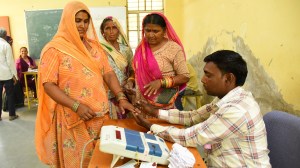- India
- International
A lesson to learn: Bangladesh reaps the benefits while India dithers on GM
Bangladesh’s record at promoting crop biotechnology is a marked contrast to India’s ambivalence
 Although India commercialised its first GM crop (Bt cotton) back in 2002, its dithering approach in the last 5-6 years stands in marked contrast to the support and favourable regulatory policies from the governments of our immediate South Asian neighbours.
Although India commercialised its first GM crop (Bt cotton) back in 2002, its dithering approach in the last 5-6 years stands in marked contrast to the support and favourable regulatory policies from the governments of our immediate South Asian neighbours.
India’s crop biotech Industry has been going through a period of great uncertainty ever since the moratorium on commercialisation of Bt Brinjal that was imposed by then Minister of Environment and Forests in February 2010, despite the Genetic Engineering Appraisal Committee giving the go-ahead following satisfactory bio-safety test results from large-scale field trials.
When the current government came to power in 2014, it was hoped that the logjam with respect to not just commercial cultivation approvals, but even field trials, would be cleared. However, due to resistance to genetically modified (GM) crop technology from certain quarters, this has not played out as expected and the regulatory environment still remains uncertain.
This comes even as our neighbouring countries are going ahead with harnessing the benefits of GM crops, which, in 2014, were planted by 18 million farmers in 181.5 million hectares — compared to a mere 1.7 million hectares in 1996.
While the likes of Pakistan, Bangladesh, Myanmar, Philippines and Vietnam are adopting GM technology to improve crop yields and reduce input costs, we are still questioning its potential not on the basis of scientific evidence, but using emotional arguments (Last week, the government deferred a decision on allowing commercial planting of GM hybrid mustard, caving into pressure from NGOs/activists).
Commercialising a crop biotech product is a time-consuming affair. This extends to not just the time required in developing a new transgenic plant event, but also subsequent bio-safety tests and field trials that take anywhere between three to seven years. In a scenario of regulatory policy uncertainty, nobody would want to invest both time and money in such efforts.

Today, we have a situation where hurdles are being placed even on conducting field trials that are meant to generate data on food, feed and environmental safety of the biotech product sought to introduced. On the one hand, activists argue that no biotech crop should be permitted for commercial cultivation until its safety is proven. At the same time, they also want to block field trials that are required to generate the necessary bio-safety data!
Although India commercialised its first GM crop (Bt cotton) back in 2002, its dithering approach in the last 5-6 years stands in marked contrast to the support and favourable regulatory policies from the governments of our immediate South Asian neighbours.
Take Bangladesh, which is proactively working on leveraging GM technology for its farmers. It is, indeed, worthwhile taking a closer look at the country’s progress in this field in recent times:
n Bangladesh was the first country to approve the commercial planting of Bt brinjal in late-2013, after being disallowed by India. Bt brinjal has been harvested over two seasons, with farmers deriving better marketable yields and incomes from its successful commercialisation under the close guidance of the Bangladesh Agricultural Research Institute.
** The country is currently undertaking confined field trials of Bt cotton to support its thriving readymade garment and textile industry. Bangladesh is, in fact, the world’s second largest importer and consumer of cotton. Through Bt cotton, it now plans to boost domestic production to meet growing local demand, while significantly reducing imports, including from India.
** Bangladesh Rice Research Institute (BRR) recently announced field trials of the world’s first vitamin A-enriched rice, also called ‘Golden Rice’. This comes in the wake of the same institute releasing the world’s first zinc-rich rice variety in 2013.
** Salinity-tolerant rice is another GM trait being developed by BRRI in collaboration with other international research partners. This again is a result of the Bangladesh government recognising the challenges posed by saline land, especially for a crop that supplies nearly 70 per cent of the calorie requirement of the country’s 160 million-strong population.
** Bangladesh is also in the last phase of field trials for a late blight-resistant potato. Late blight is a fungal disease, which is a serious concern in potatoes that is a staple food for the country’s people and largely grown by resource-poor farmers. The new transgenic late blight-resistant potato technology will enable farmers to harvest higher yields and also better-quality potato. It will also minimise use of hazardous fungicide sprays, with attendant benefits for both the soil and the environment.
These progressive steps in our neighbouring country wouldn’t have been achieved without support of all stakeholders — from the government and scientists to farmers. It is ironical that Bangladesh’s farmers are today growing Bt brinjal that was originally developed in India and couldn’t be released here because of ideological opposition to a technology having the potential to revolutionise agriculture.
It is time for our government, too, to strengthen its commitment towards advancement of agriculture through science and technology. Indian farmers have equal right to scientific solutions that would help enhance their crop productivity, incomes and livelihoods.
Must Read
Apr 23: Latest News
- 01
- 02
- 03
- 04
- 05






































